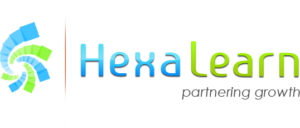Digital Knowing For A Net-Zero Future
Environment adjustment is just one of the best difficulties to our generation and the world’s promise to reach net-zero discharges by the mid-century is driving modification throughout the board. Federal governments, businesses, and societies are uniting in an effort to minimize exhausts and accomplish lasting decisions. In order to reach those ambitious goals, though, it will certainly take more than modern technology and plan, more than simply an adjustment in awareness, skills, and habits on a global scale. That is where electronic learning comes in.
By helping with discovering, reskilling, and sharing understanding at range, digital understanding enables companies and people to comprehend their payment to the net-zero path while encouraging them with the means to act successfully. Let us see just how digital learning help in speeding up global sustainability initiatives.
1 Enhancing Awareness Of Climate And Sustainability Issues
For most workers, stakeholders, and people the term “net no” stays theoretical. Digital knowing has the possible to close this gap by supplying conveniently available, interactive, and useful material detailing what web zero is necessary, and how particular markets and people can assist achieve exhausts decreases.
Microlearning components, gamified knowing, and interactive infographics can make complicated subjects like carbon accountancy, renewable resource, or sustainable supply chains understandable. These materials can bring environment proficiency to the mainstream, ensuring that sustainability purposes don’t end up being separated within leadership teams yet are comprehended by the whole workforce and culture.
2 Upskilling And Reskilling The Workforce
A low-carbon economic situation requires a green-skilled labor force– engineers that are well-informed about renewable energy innovations, supervisors who can establish lasting company tasks, and several other green work. The International Labor Company (ILO) computes that 24 million brand-new tasks can be produced around the world by the eco-friendly economic situation by 2030, but only if they have ideal skills.
Digital learning provides the scalability and adaptability needed for quick reskilling. On-line accreditation, simulations, and courses make it possible for professionals to acquire new abilities without having to stop job. As an example:
- Factory workers can be trained on energy-saving production strategies.
- Logistics personnel can discover course optimization techniques to reduced fuel use.
- Business execs can research ESG frameworks and sustainable money.
By incorporating sustainability-oriented training right into personnel development programs firms ensure that their employees create to follow net-zero criteria.
3 Promoting Behavioral Adjustment
Plans and modern technology will not aid accomplish web zero without profound changes in actions at the organizational and specific degree. Digital knowing is especially fit to cause such modification with customized discovering journeys that link individuals and method.
For example scenario-based knowing might illustrate to employees the repercussions of wasteful power behaviors contrasted to being environmentally friendly. Gamification might incentivize workers to finish sustainability challenges like lowering paper consumption or inspiring eco-friendly transport means. These put sustainability into daily choices, developing lasting behavioral alteration.
4 Sharing Global Understanding And Best Practices
Climate change is a transboundary concern that needs participation. Digital systems make it possible for sharing of knowledge between governments, markets, and academia from across the world. Webinars, online discussion forums, and virtual workshops bring experts and students across geographies together to share best methods in renewable resource, carbon capture, lasting farming, etc.
This understanding transfer makes certain that developing economic situations, which are primarily one of the most climate-vulnerable, have accessibility to the exact same knowing material as created economic climates. This equalization of expertise accelerates the world’s shift in the direction of net absolutely no while promoting inclusivity.
5 Sustaining Conformity And Coverage
As governments and financiers are demanding clear coverage of sustainability performance metrics, organizations are being nudged increasingly more to report based on standards and guidelines like the Paris Contract GRI (Global Coverage Initiative) and TCFD (Task Pressure on Climate-related Financial Disclosures).
eLearning services can train employees in conformity procedures , ecological disclosure standards, and eco-friendly investing in techniques. By giving groups with needed knowledge, organizations not only abide by guidelines however additionally improve their trustworthiness among stakeholders.
6 Reducing Discovering’s Carbon Footprint
Ironically, standard in person training has a tendency to come with a huge carbon expense through traveling, accommodation, and paper products. Digital training addresses this in a straight means by providing training remotely. The online learning platforms remove the logistical requirement for physical sources, lowering exhausts while remaining to supply top quality education and learning. When incorporated with innovations such as AI-powered customization and VR-based immersive understanding, digital training not only ends up being even more eco-friendly but likewise extra fascinating and reliable.
7 Fostering A Culture Of Sustainability
Digital learning’s most reliable application is the capacity to codify sustainability into the organizational society. eLearning remedies past conformity or technical training can progress ecological stewardship and social duty worths in all levels of a company. By making training on sustainability a continuous process as opposed to an anecdotal one, companies cultivate a culture in which staff members believe they have the flexibility to introduce, take the initiative, and link their daily work to the general reason for reaching net no.
Conclusion
Fulfilling international net-zero emissions isn’t a technological or plan obstacle– it’s a challenge for human beings that demands awareness, abilities, and activity. Digital knowing is particularly well-placed to shut expertise spaces, re-train the workforce, promote lasting behaviors, and make crucial details offered to all around the globe.
As governments and organizations make ambitious environment commitments, digital learning investments are no longer a selection however a technique vital. Through making use of eLearning not just do we speed up the shift towards a low-carbon economic climate however likewise make the trip to internet no comprehensive, scalable, and purposeful for future generations.
